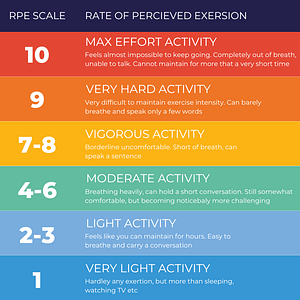Running Recovery
There are a few things you need to consider when thinking about runing recovery. How often do you usually run? Was the distance more than your usual? Was the speed faster than your regular runs? Was your run in an event? Did you feel good and fresh or achy and stiff leading up to your run? So, let’s break it down and start from the beginning…
What is recovery?
There are a multitude of factors that can affect a person’s running recovery time. First, we need to know what recovery is. Recovery means different mechanisms for different levels of athletes. To return to an everyday state physically, mentally and emotionally, for a beginner, may require minimal movement. Whereas an elite athlete or runner might typically incorporate activities like a steady 5km run, hydrotherapy, or gym conditioning sessions into their training and recovery regimen.
So, now we understand that rest is relative, make sure you have a clear understanding of what rest means to you. Speaking to a Sports Physiotherapist or a Strength and Conditioning Coach may be helpful in these cases if you aren’t sure.
To help give you some guidance here are some ways of managing using a rate of perceived exertion scale.
How many days rest after a 5k run?
The below advice is aimed towards runners who are running 5k for the first time or those who haven’t ran 5k for a long time.
RPE 10 – limit to full rest, light walking only for 54 hours
RPE 9 – limit to full rest, light walking only for 48 hours
RPE 7-8 – Limit activity to stretching, yoga, light cycling for 48 hours
RPE 4-6 – Limit activity to stretching, yoga, light cycling or swimming for 24 hours
RPE 2-3 – Limit activity to light to moderate resistance training, cycling or swimming for 24 hours
RPE 1 – No rest required
Use this guide as a general rule of thumb, but you should also consider any aches or pains during and after your run and how you feel when you wake up the next day.
Remember the initial questions asked at the start of this blog. More consistent runners will recover quicker and will require less rest. If you have ran 5k frequently, your body will be conditioned to recover quicker. If you are used to running 5k however, on this particular run you decide to run a faster pace, there will be more stress on your joints, tendons and muscles. When running in an event you may experience more endorphins and adrenaline, giving your body the extra boost to run a little bit quicker. This also comes with added stress on the body that should always be considered.
How do I recover from a 10 mile run?
A good recovery strategy is important to positive future runs. Using the RPE scale shown above is a great start. But what exercises or adjuncts can help you feel fresh in less time?
- Stretching and sports massage can help reduce the perception of delayed onset muscle soreness (DOMS) caused by micro-muscular-vascular adaptions and nervous system changes. This will unlikely reduce the risk of injury, however, it is worth feeling more comfortable in your recovery.
- Light intensity cardiovascular exercises like cycling, cross training or a light swim can also reduce the perception of DOMS. Completing this type of training following a longer, challenging run can also lightly increase the heart rate to support management of inflammation around irritated joints or overloaded muscles, tendons and ligaments.
- Ice, cold water emersion, or cryotherapy have been used for many years to manage problems and aid recovery after runs. The evidence regarding the benefits is not entirely comprehensive though. The fact is that ice only reduces swollen joints and inflammation slightly. Some studies show that cryotherapy may reduce muscle hypertrophy (the increase of muscle mass), so not exactly all good. Although, ice can reduce the perception of pain. It is important to pick and choose when best to use.
How much sleep do you need after a long run?
Proper sleep hygiene is key to your nervous and musculoskeletal system normalising. We often have different amounts of required sleep to reach this stage depending on how quickly you achieve REM sleep. Eight hours tends to be an average amount, if you are stressed or uncomfortable you may require more. Again, the amount of sleep each individual needs differs dependent on a multitude of factors. So, make sure you know and listen to your own body. It will tell you what you need!
What recovery time is right for me?
In summary the duration of recovery from a run varies depending on multiple factors, including the intensity and duration of the run, an individual’s fitness level, age, and overall health. While there’s no one-size-fits-all answer to how long it takes to recover from a run, it’s crucial to listen to your body, prioritise rest, proper nutrition, hydration, and incorporate active recovery techniques such as stretching, foam rolling, and low-impact cross-training activities.
By paying attention to these factors and allowing time for recovery, runners can optimise their performance, reduce the risk of injury, and maintain their long-term running goals.
We will always recommend visiting a Specialist Sports Physio to improve your recovery time and discuss your goals. At Pure Physio Sports we develop a training plan that is tailored to you and your lifestyle. Get in touch with one of our friendly physios today!
Author: Dominic Moon, Pure Physio Sports Lead (North) and Specialist MSK Physiotherapist
